afterLoad (456.31KB) (4.31ms)
afterInitialise (1.27MB) (67.08ms)
afterRoute (870.39KB) (28.61ms)
beforeRenderComponent com_tags (20.85KB) (2.5ms)
afterRenderComponent com_tags (2.83MB) (357ms)
afterDispatch (32.56KB) (2.84ms)
beforeRenderRawModule mod_articles_category (READ MORE...) (392.12KB) (19.86ms)
Before Access::preloadComponents (all components) (56.7KB) (980μs)
After Access::preloadComponents (all components) (103.05KB) (3.15ms)
Before Access::getAssetRules (id:8 name:com_content) (840B) (27μs)
After Access::getAssetRules (id:8 name:com_content) (7.05KB) (57μs)
afterRenderRawModule mod_articles_category (READ MORE...) (5.08KB) (231ms)
beforeRenderRawModule mod_tags_popular (Search) (4.81KB) (31μs)
afterRenderRawModule mod_tags_popular (Search) (1.84KB) (142ms)
beforeRenderRawModule mod_custom (Remember to download Heart Healthy Seniors) (816B) (42μs)
afterRenderRawModule mod_custom (Remember to download Heart Healthy Seniors) (4.86KB) (306μs)
beforeRenderRawModule mod_custom (Get additionel and more detailed knowledge ) (752B) (14μs)
afterRenderRawModule mod_custom (Get additionel and more detailed knowledge ) (1.67KB) (29μs)
beforeRenderRawModule mod_custom (BOOST YOUR IMMUNE DEFENSE) (608B) (10μs)
afterRenderRawModule mod_custom (BOOST YOUR IMMUNE DEFENSE) (928B) (24μs)
beforeRenderRawModule mod_custom (Are you taking supplements) (736B) (9μs)
afterRenderRawModule mod_custom (Are you taking supplements) (1.03KB) (18μs)
beforeRenderRawModule mod_custom (Antiaging) (720B) (9μs)
afterRenderRawModule mod_custom (Antiaging) (1.02KB) (1.17ms)
beforeRenderRawModule mod_custom (Exercise) (720B) (57μs)
afterRenderRawModule mod_custom (Exercise) (1.02KB) (51μs)
beforeRenderRawModule mod_custom (Check this before you buy a Q10 product) (752B) (11μs)
afterRenderRawModule mod_custom (Check this before you buy a Q10 product) (944B) (24μs)
beforeRenderRawModule mod_custom (Chronic fatigue tied Alan to his bed but Q10 capsules saved him:) (245.53KB) (4.95ms)
afterRenderRawModule mod_custom (Chronic fatigue tied Alan to his bed but Q10 capsules saved him:) (960B) (56μs)
beforeRenderModule mod_custom (Chronic fatigue tied Alan to his bed but Q10 capsules saved him:) (768B) (5μs)
afterRenderModule mod_custom (Chronic fatigue tied Alan to his bed but Q10 capsules saved him:) (1.3KB) (85μs)
beforeRenderRawModule mod_custom (Cholesterol-lowering without side effects:) (368B) (13μs)
afterRenderRawModule mod_custom (Cholesterol-lowering without side effects:) (2.19KB) (27μs)
beforeRenderModule mod_custom (Cholesterol-lowering without side effects:) (752B) (2μs)
afterRenderModule mod_custom (Cholesterol-lowering without side effects:) (1.28KB) (31μs)
beforeRenderModule mod_articles_category (READ MORE...) (21.32KB) (375μs)
afterRenderModule mod_articles_category (READ MORE...) (1.25KB) (50μs)
beforeRenderModule mod_tags_popular (Search) (5.17KB) (15μs)
afterRenderModule mod_tags_popular (Search) (1.27KB) (25μs)
beforeRenderModule mod_custom (Remember to download Heart Healthy Seniors) (1.17KB) (11μs)
afterRenderModule mod_custom (Remember to download Heart Healthy Seniors) (1.3KB) (22μs)
beforeRenderModule mod_custom (Get additionel and more detailed knowledge ) (368B) (9μs)
afterRenderModule mod_custom (Get additionel and more detailed knowledge ) (1.3KB) (21μs)
beforeRenderModule mod_custom (BOOST YOUR IMMUNE DEFENSE) (224B) (1.04ms)
afterRenderModule mod_custom (BOOST YOUR IMMUNE DEFENSE) (1.28KB) (92μs)
beforeRenderModule mod_custom (Are you taking supplements) (352B) (15μs)
afterRenderModule mod_custom (Are you taking supplements) (1.28KB) (26μs)
beforeRenderModule mod_custom (Antiaging) (336B) (11μs)
afterRenderModule mod_custom (Antiaging) (1.27KB) (22μs)
beforeRenderModule mod_custom (Exercise) (336B) (9μs)
afterRenderModule mod_custom (Exercise) (1.25KB) (21μs)
beforeRenderModule mod_custom (Check this before you buy a Q10 product) (352B) (9μs)
afterRenderModule mod_custom (Check this before you buy a Q10 product) (1.28KB) (20μs)
beforeRenderRawModule mod_menu (Main menu-US) (20.94KB) (3.83ms)
afterRenderRawModule mod_menu (Main menu-US) (152.66KB) (3.41ms)
beforeRenderModule mod_menu (Main menu-US) (720B) (7μs)
afterRenderModule mod_menu (Main menu-US) (4.36KB) (89μs)
beforeRenderRawModule mod_languages (Sprogskift) (3.44KB) (23μs)
afterRenderRawModule mod_languages (Sprogskift) (90.83KB) (5.04ms)
beforeRenderModule mod_languages (Sprogskift) (720B) (7μs)
afterRenderModule mod_languages (Sprogskift) (5.31KB) (28μs)
beforeRenderRawModule mod_finder () (6.34KB) (14μs)
afterRenderRawModule mod_finder () (150.16KB) (7.91ms)
beforeRenderModule mod_finder () (704B) (6μs)
afterRenderModule mod_finder () (5.79KB) (43μs)
beforeRenderRawModule mod_custom () (6.62KB) (160μs)
afterRenderRawModule mod_custom () (22.66KB) (3.9ms)
beforeRenderModule mod_custom () (704B) (8μs)
afterRenderModule mod_custom () (1.23KB) (74μs)
beforeRenderRawModule mod_menu (Main menu-US) (5.07KB) (137μs)
afterRenderRawModule mod_menu (Main menu-US) (5.8KB) (1.95ms)
beforeRenderModule mod_menu (Main menu-US) (720B) (7μs)
afterRenderModule mod_menu (Main menu-US) (1.25KB) (69μs)
beforeRenderRawModule mod_languages (Sprogskift Mobil) (912B) (22μs)
afterRenderRawModule mod_languages (Sprogskift Mobil) (3.89KB) (815μs)
beforeRenderModule mod_languages (Sprogskift Mobil) (720B) (3μs)
afterRenderModule mod_languages (Sprogskift Mobil) (1.27KB) (38μs)
beforeRenderRawModule mod_finder () (2.3KB) (13μs)
afterRenderRawModule mod_finder () (6.29KB) (3.21ms)
beforeRenderModule mod_finder () (704B) (8μs)
afterRenderModule mod_finder () (1.23KB) (71μs)
beforeRenderRawModule mod_custom () (8.66KB) (363μs)
afterRenderRawModule mod_custom () (904B) (199μs)
beforeRenderModule mod_custom () (704B) (3μs)
afterRenderModule mod_custom () (2.43KB) (34μs)
beforeRenderRawModule mod_custom () (688B) (105μs)
afterRenderRawModule mod_custom () (896B) (126μs)
beforeRenderModule mod_custom () (704B) (3μs)
afterRenderModule mod_custom () (2.71KB) (669μs)
afterRender (492.21KB) (36.47ms)
| 1 x afterRenderComponent com_tags (2.83MB) (38.06%) | 356.77ms |
| 1 x afterRenderRawModule mod_articles_category (READ MORE...) (5.08KB) (24.63%) | 230.90ms |
| 1 x afterRenderRawModule mod_tags_popular (Search) (1.84KB) (15.12%) | 141.71ms |
| 1 x afterInitialise (1.27MB) (7.16%) | 67.08ms |
| 1 x afterRender (492.21KB) (3.89%) | 36.47ms |
| 1 x afterRoute (870.39KB) (3.05%) | 28.61ms |
| 1 x beforeRenderRawModule mod_articles_category (READ MORE...) (392.12KB) (2.12%) | 19.86ms |
| 1 x afterRenderRawModule mod_finder () (150.16KB) (0.84%) | 7.91ms |
| 1 x afterRenderRawModule mod_languages (Sprogskift) (90.83KB) (0.54%) | 5.04ms |
| 1 x beforeRenderRawModule mod_custom (Chronic fatigue tied Alan to his bed but Q10 capsules saved him:) (245.53KB) (0.53%) | 4.95ms |
| 1 x afterLoad (456.31KB) (0.46%) | 4.31ms |
| 1 x afterRenderRawModule mod_custom () (22.66KB) (0.42%) | 3.90ms |
| 1 x beforeRenderRawModule mod_menu (Main menu-US) (20.94KB) (0.41%) | 3.83ms |
| 1 x afterRenderRawModule mod_menu (Main menu-US) (152.66KB) (0.36%) | 3.41ms |
| 1 x afterRenderRawModule mod_finder () (6.29KB) (0.34%) | 3.21ms |
| 1 x After Access::preloadComponents (all components) (103.05KB) (0.34%) | 3.15ms |
| 1 x afterDispatch (32.56KB) (0.3%) | 2.84ms |
| 1 x beforeRenderComponent com_tags (20.85KB) (0.27%) | 2.50ms |
| 1 x afterRenderRawModule mod_menu (Main menu-US) (5.8KB) (0.21%) | 1.95ms |
| 1 x afterRenderRawModule mod_custom (Antiaging) (1.02KB) (0.12%) | 1.17ms |
| 1 x beforeRenderModule mod_custom (BOOST YOUR IMMUNE DEFENSE) (224B) (0.11%) | 1.04ms |
| 1 x Before Access::preloadComponents (all components) (56.7KB) (0.1%) | 980μs |
| 1 x afterRenderRawModule mod_languages (Sprogskift Mobil) (3.89KB) (0.09%) | 815μs |
| 1 x afterRenderModule mod_custom () (2.71KB) (0.07%) | 669μs |
| 1 x beforeRenderModule mod_articles_category (READ MORE...) (21.32KB) (0.04%) | 375μs |
| 1 x beforeRenderRawModule mod_custom () (8.66KB) (0.04%) | 363μs |
| 1 x afterRenderRawModule mod_custom (Remember to download Heart Healthy Seniors) (4.86KB) (0.03%) | 306μs |
| 1 x afterRenderRawModule mod_custom () (904B) (0.02%) | 199μs |
| 1 x beforeRenderRawModule mod_custom () (6.62KB) (0.02%) | 160μs |
| 1 x beforeRenderRawModule mod_menu (Main menu-US) (5.07KB) (0.01%) | 137μs |
| 1 x afterRenderRawModule mod_custom () (896B) (0.01%) | 126μs |
| 1 x beforeRenderRawModule mod_custom () (688B) (0.01%) | 105μs |
| 1 x afterRenderModule mod_custom (BOOST YOUR IMMUNE DEFENSE) (1.28KB) (0.01%) | 92μs |
| 1 x afterRenderModule mod_menu (Main menu-US) (4.36KB) (0.01%) | 89μs |
| 1 x afterRenderModule mod_custom (Chronic fatigue tied Alan to his bed but Q10 capsules saved him:) (1.3KB) (0.01%) | 85μs |
| 1 x afterRenderModule mod_custom () (1.23KB) (0.01%) | 74μs |
| 1 x afterRenderModule mod_finder () (1.23KB) (0.01%) | 71μs |
| 1 x afterRenderModule mod_menu (Main menu-US) (1.25KB) (0.01%) | 69μs |
| 1 x After Access::getAssetRules (id:8 name:com_content) (7.05KB) (0.01%) | 57μs |
| 1 x beforeRenderRawModule mod_custom (Exercise) (720B) (0.01%) | 57μs |
| 1 x afterRenderRawModule mod_custom (Chronic fatigue tied Alan to his bed but Q10 capsules saved him:) (960B) (0.01%) | 56μs |
| 1 x afterRenderRawModule mod_custom (Exercise) (1.02KB) (0.01%) | 51μs |
| 1 x afterRenderModule mod_articles_category (READ MORE...) (1.25KB) (0.01%) | 50μs |
| 1 x afterRenderModule mod_finder () (5.79KB) (0%) | 43μs |
| 1 x beforeRenderRawModule mod_custom (Remember to download Heart Healthy Seniors) (816B) (0%) | 42μs |
| 1 x afterRenderModule mod_languages (Sprogskift Mobil) (1.27KB) (0%) | 38μs |
| 1 x afterRenderModule mod_custom () (2.43KB) (0%) | 34μs |
| 1 x beforeRenderRawModule mod_tags_popular (Search) (4.81KB) (0%) | 31μs |
| 1 x afterRenderModule mod_custom (Cholesterol-lowering without side effects:) (1.28KB) (0%) | 31μs |
| 1 x afterRenderRawModule mod_custom (Get additionel and more detailed knowledge ) (1.67KB) (0%) | 29μs |
| 1 x afterRenderModule mod_languages (Sprogskift) (5.31KB) (0%) | 28μs |
| 1 x Before Access::getAssetRules (id:8 name:com_content) (840B) (0%) | 27μs |
| 1 x afterRenderRawModule mod_custom (Cholesterol-lowering without side effects:) (2.19KB) (0%) | 27μs |
| 1 x afterRenderModule mod_custom (Are you taking supplements) (1.28KB) (0%) | 26μs |
| 1 x afterRenderModule mod_tags_popular (Search) (1.27KB) (0%) | 25μs |
| 1 x afterRenderRawModule mod_custom (BOOST YOUR IMMUNE DEFENSE) (928B) (0%) | 24μs |
| 1 x afterRenderRawModule mod_custom (Check this before you buy a Q10 product) (944B) (0%) | 24μs |
| 1 x beforeRenderRawModule mod_languages (Sprogskift) (3.44KB) (0%) | 23μs |
| 1 x afterRenderModule mod_custom (Antiaging) (1.27KB) (0%) | 22μs |
| 1 x afterRenderModule mod_custom (Remember to download Heart Healthy Seniors) (1.3KB) (0%) | 22μs |
| 1 x beforeRenderRawModule mod_languages (Sprogskift Mobil) (912B) (0%) | 22μs |
| 1 x afterRenderModule mod_custom (Get additionel and more detailed knowledge ) (1.3KB) (0%) | 21μs |
| 1 x afterRenderModule mod_custom (Exercise) (1.25KB) (0%) | 21μs |
| 1 x afterRenderModule mod_custom (Check this before you buy a Q10 product) (1.28KB) (0%) | 20μs |
| 1 x afterRenderRawModule mod_custom (Are you taking supplements) (1.03KB) (0%) | 18μs |
| 1 x beforeRenderModule mod_tags_popular (Search) (5.17KB) (0%) | 15μs |
| 1 x beforeRenderModule mod_custom (Are you taking supplements) (352B) (0%) | 15μs |
| 2 x beforeRenderModule mod_menu (Main menu-US) (720B) (0%) | 14μs |
| 1 x beforeRenderRawModule mod_finder () (6.34KB) (0%) | 14μs |
| 3 x beforeRenderModule mod_custom () (704B) (0%) | 14μs |
| 1 x beforeRenderRawModule mod_custom (Get additionel and more detailed knowledge ) (752B) (0%) | 14μs |
| 2 x beforeRenderModule mod_finder () (704B) (0%) | 14μs |
| 1 x beforeRenderRawModule mod_custom (Cholesterol-lowering without side effects:) (368B) (0%) | 13μs |
| 1 x beforeRenderRawModule mod_finder () (2.3KB) (0%) | 13μs |
| 1 x beforeRenderRawModule mod_custom (Check this before you buy a Q10 product) (752B) (0%) | 11μs |
| 1 x beforeRenderModule mod_custom (Remember to download Heart Healthy Seniors) (1.17KB) (0%) | 11μs |
| 1 x beforeRenderModule mod_custom (Antiaging) (336B) (0%) | 11μs |
| 1 x beforeRenderRawModule mod_custom (BOOST YOUR IMMUNE DEFENSE) (608B) (0%) | 10μs |
| 1 x beforeRenderRawModule mod_custom (Antiaging) (720B) (0%) | 9μs |
| 1 x beforeRenderModule mod_custom (Get additionel and more detailed knowledge ) (368B) (0%) | 9μs |
| 1 x beforeRenderModule mod_custom (Check this before you buy a Q10 product) (352B) (0%) | 9μs |
| 1 x beforeRenderRawModule mod_custom (Are you taking supplements) (736B) (0%) | 9μs |
| 1 x beforeRenderModule mod_custom (Exercise) (336B) (0%) | 9μs |
| 1 x beforeRenderModule mod_languages (Sprogskift) (720B) (0%) | 7μs |
| 1 x beforeRenderModule mod_custom (Chronic fatigue tied Alan to his bed but Q10 capsules saved him:) (768B) (0%) | 5μs |
| 1 x beforeRenderModule mod_languages (Sprogskift Mobil) (720B) (0%) | 3μs |
| 1 x beforeRenderModule mod_custom (Cholesterol-lowering without side effects:) (752B) (0%) | 2μs |
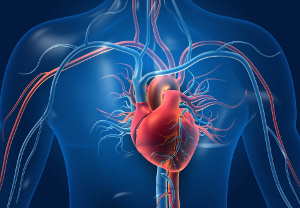 Iron is essential for oxygen transport in the blood and cellular energy production, yet deficiencies are common in patients with chronic heart failure. This additionally impairs their physical capacity and quality of life. Iron deficiency is associated with hospitalization and early death, as highlighted in a review article published by the American College of Cardiology. Heart failure patients should therefore always have their iron status checked. Intravenous iron therapy appears to be most effective for treating iron deficiency in heart failure patients. It is also crucial for these patients to ensure adequate dietary iron intake while being mindful of factors that can limit iron absorption and utilization.
Iron is essential for oxygen transport in the blood and cellular energy production, yet deficiencies are common in patients with chronic heart failure. This additionally impairs their physical capacity and quality of life. Iron deficiency is associated with hospitalization and early death, as highlighted in a review article published by the American College of Cardiology. Heart failure patients should therefore always have their iron status checked. Intravenous iron therapy appears to be most effective for treating iron deficiency in heart failure patients. It is also crucial for these patients to ensure adequate dietary iron intake while being mindful of factors that can limit iron absorption and utilization.









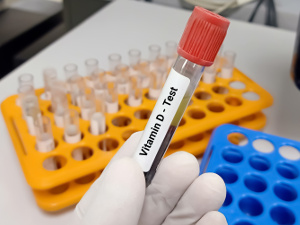 Blood levels of vitamin D serve as an early indicator of future health problems such as cardiovascular disease, osteoporosis, and cancer, according to a review article that was presented recently to the European Society of Endocrinology. Lack of vitamin D is rather common and a threat to public health, which is why the scientists suggest measuring levels of total vitamin D and free vitamin D in the blood. By optimizing levels of the nutrient in the blood it is possible to prevent a host of different lifestyle diseases as well as early death. It is not enough just to take any random vitamin D supplement. It must contain the right dose and have good absorption in order to be able to optimize vitamin D levels in the blood.
Blood levels of vitamin D serve as an early indicator of future health problems such as cardiovascular disease, osteoporosis, and cancer, according to a review article that was presented recently to the European Society of Endocrinology. Lack of vitamin D is rather common and a threat to public health, which is why the scientists suggest measuring levels of total vitamin D and free vitamin D in the blood. By optimizing levels of the nutrient in the blood it is possible to prevent a host of different lifestyle diseases as well as early death. It is not enough just to take any random vitamin D supplement. It must contain the right dose and have good absorption in order to be able to optimize vitamin D levels in the blood.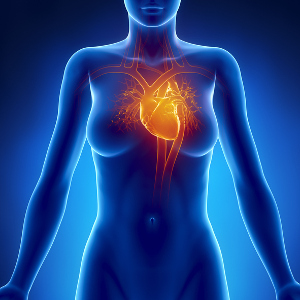 There is a clear link between magnesium intake and the risk of heart diseases and sudden cardiac death in postmenopausal women, according to a study that is published in Journal of Women’s Health. Unfortunately, many women are not diagnosed with heart disease at a sufficiently early stage. It is also a fact that many postmenopausal women take calcium supplements for bone health. However, if they also lack magnesium, which is responsible for the calcium distribution in the body, the calcium supplements may instead increase the risk of coronary atherosclerosis. According to new and earlier research, we must focus a lot more on telling women how important it is to get enough magnesium at all stages of life – not least after menopause.
There is a clear link between magnesium intake and the risk of heart diseases and sudden cardiac death in postmenopausal women, according to a study that is published in Journal of Women’s Health. Unfortunately, many women are not diagnosed with heart disease at a sufficiently early stage. It is also a fact that many postmenopausal women take calcium supplements for bone health. However, if they also lack magnesium, which is responsible for the calcium distribution in the body, the calcium supplements may instead increase the risk of coronary atherosclerosis. According to new and earlier research, we must focus a lot more on telling women how important it is to get enough magnesium at all stages of life – not least after menopause.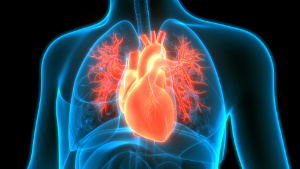 Seniors have an increased risk of cardiovascular disease, which is the leading cause of death. It is commonly known that diet plays a key role in preventing these diseases, and a team of scientists therefore decided to look closer at zinc because of this nutrient’s many functions in the heart and cardiovascular system. The scientists found that older people often lack zinc for different reasons. Therefore, the dietary guidelines for zinc in old age should be reconsidered with regard to cardiovascular health and other zinc-dependent functions.
Seniors have an increased risk of cardiovascular disease, which is the leading cause of death. It is commonly known that diet plays a key role in preventing these diseases, and a team of scientists therefore decided to look closer at zinc because of this nutrient’s many functions in the heart and cardiovascular system. The scientists found that older people often lack zinc for different reasons. Therefore, the dietary guidelines for zinc in old age should be reconsidered with regard to cardiovascular health and other zinc-dependent functions.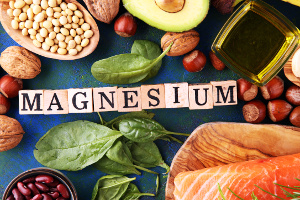
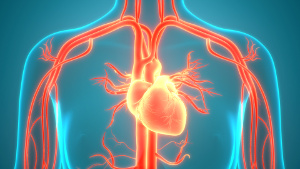 Life cannot exist without coenzyme Q10. The compound is necessary for the energy turnover in all our cells. It also functions as a powerful antioxidant that protects the heart and cardiovascular system against oxidative stress. Humans are able to synthesize Q10 but our endogenous production decreases with age. Heart failure patients also have reduced levels of Q10 which can be fatal, but decades of research have shown that Q10 supplements can improve quality of life and reduce mortality by close to 50 percent, according to a review article in Journal of Clinical Medicine. Here, the authors refer to 90 published articles. It is also important to get enough selenium, which helps Q10 function optimally.
Life cannot exist without coenzyme Q10. The compound is necessary for the energy turnover in all our cells. It also functions as a powerful antioxidant that protects the heart and cardiovascular system against oxidative stress. Humans are able to synthesize Q10 but our endogenous production decreases with age. Heart failure patients also have reduced levels of Q10 which can be fatal, but decades of research have shown that Q10 supplements can improve quality of life and reduce mortality by close to 50 percent, according to a review article in Journal of Clinical Medicine. Here, the authors refer to 90 published articles. It is also important to get enough selenium, which helps Q10 function optimally. Many men suffer from erectile dysfunction, a problem that often foreshadows cardiovascular disorders. It appears that vitamin D plays a preventive role by way of several mechanisms that can even benefit diabetics, according to a new meta-analysis published in Clinical Nutrition. An earlier study that is published in Clinical Endocrinology shows that vitamin D is involved in the production of male testosterone, which is essential for the ability to obtain and maintain an erection. A man’s sexual performance is therefore highly dependent on his vitamin D levels throughout life.
Many men suffer from erectile dysfunction, a problem that often foreshadows cardiovascular disorders. It appears that vitamin D plays a preventive role by way of several mechanisms that can even benefit diabetics, according to a new meta-analysis published in Clinical Nutrition. An earlier study that is published in Clinical Endocrinology shows that vitamin D is involved in the production of male testosterone, which is essential for the ability to obtain and maintain an erection. A man’s sexual performance is therefore highly dependent on his vitamin D levels throughout life. The number of seniors in the world is growing steadily which means a surge in problems like cardiovascular disease, cancer, respiratory illnesses, overweight, diabetes, rheumatism, dementia, and Alzheimer’s disease. These diseases that have a widespread impact on human lives and are a burden to society are often linked to chronic inflammation. A group of scientists therefore decided to look closer at studies that have found a positive effect of the omega-3 fatty acids EPA and DHA on cognitive functioning, maintenance of muscle mass, and prevention and treatment of a host of serious diseases that are related to ageing. It is vital to start supplementing early and to take the right doses, according to the new review article published in Nutrients.
The number of seniors in the world is growing steadily which means a surge in problems like cardiovascular disease, cancer, respiratory illnesses, overweight, diabetes, rheumatism, dementia, and Alzheimer’s disease. These diseases that have a widespread impact on human lives and are a burden to society are often linked to chronic inflammation. A group of scientists therefore decided to look closer at studies that have found a positive effect of the omega-3 fatty acids EPA and DHA on cognitive functioning, maintenance of muscle mass, and prevention and treatment of a host of serious diseases that are related to ageing. It is vital to start supplementing early and to take the right doses, according to the new review article published in Nutrients. Heart failure is a disease with a variety of different symptoms and a high mortality rate because the heart’s pumping function is impaired. Heart failure is also characterized by chronic inflammation that worsens the prognosis. Apparently, fish oil supplementation can reduce chronic inflammation, according to a meta-analysis that is published in Heart Failure Reviews. In fact, eating more omega-3 fatty acids from fish and different plant sources can improve survival in heart failure.
Heart failure is a disease with a variety of different symptoms and a high mortality rate because the heart’s pumping function is impaired. Heart failure is also characterized by chronic inflammation that worsens the prognosis. Apparently, fish oil supplementation can reduce chronic inflammation, according to a meta-analysis that is published in Heart Failure Reviews. In fact, eating more omega-3 fatty acids from fish and different plant sources can improve survival in heart failure. On a global scale, atherosclerosis is the leading cause of death due to heart failure or stroke. Atherosclerosis causes symptoms such as breathing difficulty, calf pain,
On a global scale, atherosclerosis is the leading cause of death due to heart failure or stroke. Atherosclerosis causes symptoms such as breathing difficulty, calf pain, On a global scale, cardiovascular disease and coronary occlusion cause more deaths than any other factor. However, according to a large meta-analysis from Harvard T. H. Chan School of Public Health and Brigham and Women’s Hospital in Boston, USA, people who take fish oil have a lower risk of atherosclerosis and cardiac failure than those, who do not take the supplements. The study also revealed that high-dosed fish oil supplementation delivers more health benefits than the lower doses. Atherosclerosis develops gradually, and millions of people die every year because of this problem, which means that even minor changes such as taking supplements and eating a healthier diet, can improve quality of life and prevent many deaths. So, according to the new study, how much fish oil is needed in order to obtain the optimal cardiovascular effect?
On a global scale, cardiovascular disease and coronary occlusion cause more deaths than any other factor. However, according to a large meta-analysis from Harvard T. H. Chan School of Public Health and Brigham and Women’s Hospital in Boston, USA, people who take fish oil have a lower risk of atherosclerosis and cardiac failure than those, who do not take the supplements. The study also revealed that high-dosed fish oil supplementation delivers more health benefits than the lower doses. Atherosclerosis develops gradually, and millions of people die every year because of this problem, which means that even minor changes such as taking supplements and eating a healthier diet, can improve quality of life and prevent many deaths. So, according to the new study, how much fish oil is needed in order to obtain the optimal cardiovascular effect? Heart failure affects millions of people worldwide and many die within the first year of being hospitalized with acute heart failure. However, eating a diet that is rich in the omega-3 fatty acid EPA from oily fish and ALA from plant foods such as walnuts is linked to a lower risk of blood clots and early death, according to a new study that is published in Journal of the American College of Cardiology. You can also read more about another compound that improves cardiac function and survival after acute heart failure.
Heart failure affects millions of people worldwide and many die within the first year of being hospitalized with acute heart failure. However, eating a diet that is rich in the omega-3 fatty acid EPA from oily fish and ALA from plant foods such as walnuts is linked to a lower risk of blood clots and early death, according to a new study that is published in Journal of the American College of Cardiology. You can also read more about another compound that improves cardiac function and survival after acute heart failure.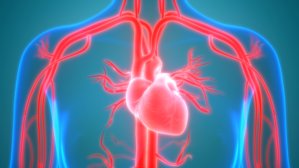 Patients who take glucosamine for their osteoarthritis have a bonus effect: The preparation also lowers the risk of cardiovascular disease, according to a large population study published in the science journal British Medical Journal. Always choose pharmaceutical-grade glucosamine so you are sure to obtain the desired effect.
Patients who take glucosamine for their osteoarthritis have a bonus effect: The preparation also lowers the risk of cardiovascular disease, according to a large population study published in the science journal British Medical Journal. Always choose pharmaceutical-grade glucosamine so you are sure to obtain the desired effect.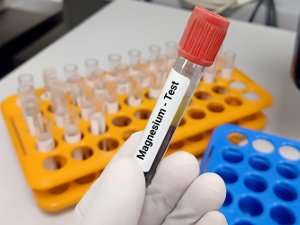 Chronic heart failure is a clinical syndrome that involves, among other things, reduced heart pumping function. The condition is often life-threatening. A new study that is published in Journal of the American Heart Association looks closer at how supplementation with magnesium can help the heart muscle contract with greater force and perhaps be a useful adjuvant in the treatment of heart failure. The study supports another study that is published in Diabetes Care. In this study, it is demonstrated that lack of magnesium is linked to heart failure, atrial fibrillation, and other complications from type 2 diabetes.
Chronic heart failure is a clinical syndrome that involves, among other things, reduced heart pumping function. The condition is often life-threatening. A new study that is published in Journal of the American Heart Association looks closer at how supplementation with magnesium can help the heart muscle contract with greater force and perhaps be a useful adjuvant in the treatment of heart failure. The study supports another study that is published in Diabetes Care. In this study, it is demonstrated that lack of magnesium is linked to heart failure, atrial fibrillation, and other complications from type 2 diabetes. Coronary occlusion is the leading cause of death worldwide. Type 2 diabetes is spreading like a bushfire and this disease is characterized by atherosclerosis and early death. Diet and lifestyle are of vital importance and the same goes for vitamin D. According to a new American study that is published in Nutrients, people whose blood levels of vitamin D are above the official threshold levels have fewer biomarkers of cardiovascular disease, type 2 diabetes, and metabolic syndrome.
Coronary occlusion is the leading cause of death worldwide. Type 2 diabetes is spreading like a bushfire and this disease is characterized by atherosclerosis and early death. Diet and lifestyle are of vital importance and the same goes for vitamin D. According to a new American study that is published in Nutrients, people whose blood levels of vitamin D are above the official threshold levels have fewer biomarkers of cardiovascular disease, type 2 diabetes, and metabolic syndrome.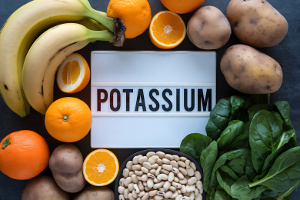 High blood pressure is the primary cause of cardiovascular diseases, strokes, and early death. There has primarily been focus on limiting salt (sodium) intake, but now it appears that the balance between sodium and potassium is even more important. According to a study published in the American Journal of Physiology-Renal Physiology, consuming bananas, avocados, broccoli, nuts, and other potassium-rich foods can be beneficial in preventing and treating high blood pressure.
High blood pressure is the primary cause of cardiovascular diseases, strokes, and early death. There has primarily been focus on limiting salt (sodium) intake, but now it appears that the balance between sodium and potassium is even more important. According to a study published in the American Journal of Physiology-Renal Physiology, consuming bananas, avocados, broccoli, nuts, and other potassium-rich foods can be beneficial in preventing and treating high blood pressure.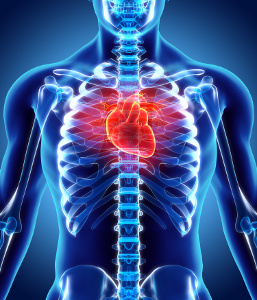 Cardiovascular disease is the leading cause of death worldwide, and our diet and lifestyle play a major role. According to an Australian study published in British Medical Journal, high-dosed vitamin D supplementation taken for several years lowers the risk of heart attacks or interventions such as angioplasty and by-pass surgery in people aged 60 years and older.
Cardiovascular disease is the leading cause of death worldwide, and our diet and lifestyle play a major role. According to an Australian study published in British Medical Journal, high-dosed vitamin D supplementation taken for several years lowers the risk of heart attacks or interventions such as angioplasty and by-pass surgery in people aged 60 years and older.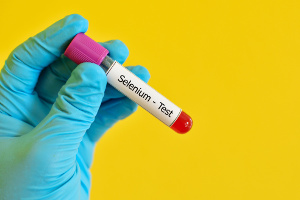
 Selenium supports a host of different metabolic processes and serves as an antioxidant that protects our cells. According to recent studies, selenium also has anti-ageing properties that protect us against cardiovascular disease, cancer, dementia, and other age-related diseases. According to a review article published in Medical News Today, selenium also helps against impaired immunity and counteracts chronic inflammation, which is typically seen in connection with ageing processes. A Swedish study of healthy seniors has even showed that supplementation with selenium and Q10 has a positive effect on heart function, quality of life, and life expectancy.
Selenium supports a host of different metabolic processes and serves as an antioxidant that protects our cells. According to recent studies, selenium also has anti-ageing properties that protect us against cardiovascular disease, cancer, dementia, and other age-related diseases. According to a review article published in Medical News Today, selenium also helps against impaired immunity and counteracts chronic inflammation, which is typically seen in connection with ageing processes. A Swedish study of healthy seniors has even showed that supplementation with selenium and Q10 has a positive effect on heart function, quality of life, and life expectancy. It is both healthy and life-extending to get plenty of summer sun, which is our main source of vitamin D. Just make sure not to get a sunburn. According to a large population study from University of South Australia, too little vitamin D in the blood is linked to early death, especially because of an increased risk of cardiovascular disease, cancer, and respiratory diseases. This is very relevant because, apart from the lack of sunshine during winter, things like sun awareness campaigns, indoor living, being overweight, and having dark skin can contribute to the widespread lack of vitamin D. The official recommendations for vitamin D intake are also comparatively conservative. Therefore, people should strive to optimize their levels of the nutrient, as vitamin D is involved in regulating countless gene activities and other functions in the body.
It is both healthy and life-extending to get plenty of summer sun, which is our main source of vitamin D. Just make sure not to get a sunburn. According to a large population study from University of South Australia, too little vitamin D in the blood is linked to early death, especially because of an increased risk of cardiovascular disease, cancer, and respiratory diseases. This is very relevant because, apart from the lack of sunshine during winter, things like sun awareness campaigns, indoor living, being overweight, and having dark skin can contribute to the widespread lack of vitamin D. The official recommendations for vitamin D intake are also comparatively conservative. Therefore, people should strive to optimize their levels of the nutrient, as vitamin D is involved in regulating countless gene activities and other functions in the body.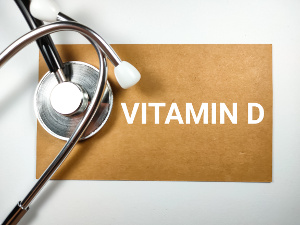 Vitamin D’s role in maintaining proper health is well documented. Still, many older people lack the nutrient and that increases their risk of bone fractures, blood poisoning, and disease complications that can eventually lead to hospitalization. Also, they risk prolonged hospitalization according to a new Irish study published in the scientific journal Nutrients. The scientists recommend giving vitamin D supplements to seniors to increase their blood levels of vitamin D. Other studies even suggest that this can protect against COVID-19, as low vitamin D status is associated with an increased risk of being hospitalized with the disease.
Vitamin D’s role in maintaining proper health is well documented. Still, many older people lack the nutrient and that increases their risk of bone fractures, blood poisoning, and disease complications that can eventually lead to hospitalization. Also, they risk prolonged hospitalization according to a new Irish study published in the scientific journal Nutrients. The scientists recommend giving vitamin D supplements to seniors to increase their blood levels of vitamin D. Other studies even suggest that this can protect against COVID-19, as low vitamin D status is associated with an increased risk of being hospitalized with the disease.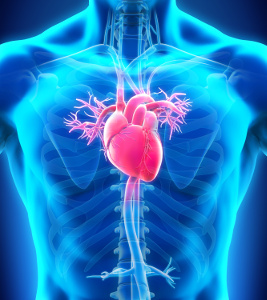 Atrial fibrillation is a rhythm disturbance in the electrical system of the heart. It is also one of the most common heart disorders and can be both harmless and potentially life-threatening. Lack of vitamin D increases the risk of normal atrial fibrillation and postoperative atrial fibrillation, according to a meta-analysis that is published in the scientific journal Nutrition. Vitamin D deficiencies are rather common so it is important to make sure to get enough of the nutrient for preventing and treating this disorder.
Atrial fibrillation is a rhythm disturbance in the electrical system of the heart. It is also one of the most common heart disorders and can be both harmless and potentially life-threatening. Lack of vitamin D increases the risk of normal atrial fibrillation and postoperative atrial fibrillation, according to a meta-analysis that is published in the scientific journal Nutrition. Vitamin D deficiencies are rather common so it is important to make sure to get enough of the nutrient for preventing and treating this disorder.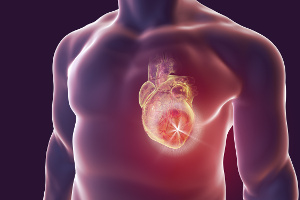 Vitamin D deficiencies are widespread and result in an increased risk of atherosclerosis, heart disease, and hypertension, according to a new study from University of South Australia. Because cardiovascular diseases are the leading cause of death globally, scientists see a huge potential in vitamin D, a nutrient that may be able to save millions of lives.
Vitamin D deficiencies are widespread and result in an increased risk of atherosclerosis, heart disease, and hypertension, according to a new study from University of South Australia. Because cardiovascular diseases are the leading cause of death globally, scientists see a huge potential in vitamin D, a nutrient that may be able to save millions of lives. Chronic heart failure is a potentially life-threatening condition that affects millions of people worldwide. A group of scientists recently looked at the relation between chronic heart failure and zinc deficiency and how zinc supplementation can improve heart health by various accounts. The scientists also investigated why zinc deficiencies are so common. Their study is published in the Journal of Cardiac Failure.
Chronic heart failure is a potentially life-threatening condition that affects millions of people worldwide. A group of scientists recently looked at the relation between chronic heart failure and zinc deficiency and how zinc supplementation can improve heart health by various accounts. The scientists also investigated why zinc deficiencies are so common. Their study is published in the Journal of Cardiac Failure.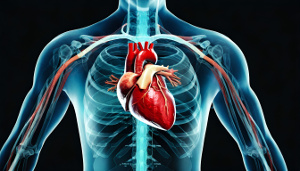
 Potassium and sodium (which is found in regular table salt) work together in an elaborate and essential way in the body. Unfortunately, we get far too much concealed salt from industrially processed foods, and our intake of potassium from vegetables is often too low. This increases our risk of elevated blood pressure and stroke. Nonetheless, people on low-sodium diets have a lower risk of suffering a stroke and dying, according to a large Chinese study. The scientists assume that sodium may represent an inexpensive and simple way to improve public health. How important is it really to have the proper balance between sodium and potassium?
Potassium and sodium (which is found in regular table salt) work together in an elaborate and essential way in the body. Unfortunately, we get far too much concealed salt from industrially processed foods, and our intake of potassium from vegetables is often too low. This increases our risk of elevated blood pressure and stroke. Nonetheless, people on low-sodium diets have a lower risk of suffering a stroke and dying, according to a large Chinese study. The scientists assume that sodium may represent an inexpensive and simple way to improve public health. How important is it really to have the proper balance between sodium and potassium?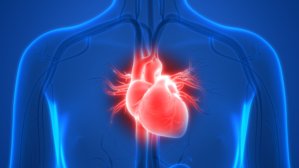 Heart failure is when the heart loses power and is no longer able to deliver blood to the different parts of the body. Typical symptoms are shortness of breath and physical exhaustion. There may also be symptoms like fluid retention, persistent coughing, chest tightness, increased sweating, or cold sensitivity. Chronic heart failure may be caused by different things, and it is a life-threatening condition. However, according to a study that is published in Journal of Clinical Investigation, magnesium supplementation can improve a type of heart failure called diastolic dysfunction. Previous studies have demonstrated that supplements of Q10 can also improve cardiac function in patients with heart failure.
Heart failure is when the heart loses power and is no longer able to deliver blood to the different parts of the body. Typical symptoms are shortness of breath and physical exhaustion. There may also be symptoms like fluid retention, persistent coughing, chest tightness, increased sweating, or cold sensitivity. Chronic heart failure may be caused by different things, and it is a life-threatening condition. However, according to a study that is published in Journal of Clinical Investigation, magnesium supplementation can improve a type of heart failure called diastolic dysfunction. Previous studies have demonstrated that supplements of Q10 can also improve cardiac function in patients with heart failure. Cardiovascular disease is the leading cause of death worldwide but a new Dutch study has revealed that older patients who have suffered a previous heart attack can lower their risk of early death caused by cardiovascular disease and other causes by getting enough magnesium. Magnesium deficiencies are rather common because of unhealthy eating habits, and there are also certain types of medicine that impair the body’s ability to absorb and utilize magnesium.
Cardiovascular disease is the leading cause of death worldwide but a new Dutch study has revealed that older patients who have suffered a previous heart attack can lower their risk of early death caused by cardiovascular disease and other causes by getting enough magnesium. Magnesium deficiencies are rather common because of unhealthy eating habits, and there are also certain types of medicine that impair the body’s ability to absorb and utilize magnesium.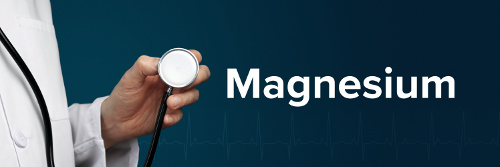
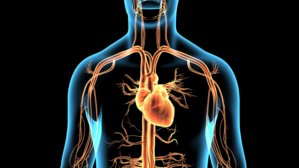 Melatonin is primarily known as a sleep hormone and a powerful antioxidant. According to a new study, melatonin may even improve the condition of rats that have heart rhythm disturbances with an increased risk of heart attack. Melatonin’s ability to improve the heart function is not related to its antioxidant function, however, and that surprised the scientists behind the study. The new study was presented at an annual meeting for the American Physiological Society (APS) in Orlando. Melatonin has several vital functions, but as we age our endogenous production decreases. Not only does this affect our quality of sleep, it also has a negative impact on the heart and the body’s cells.
Melatonin is primarily known as a sleep hormone and a powerful antioxidant. According to a new study, melatonin may even improve the condition of rats that have heart rhythm disturbances with an increased risk of heart attack. Melatonin’s ability to improve the heart function is not related to its antioxidant function, however, and that surprised the scientists behind the study. The new study was presented at an annual meeting for the American Physiological Society (APS) in Orlando. Melatonin has several vital functions, but as we age our endogenous production decreases. Not only does this affect our quality of sleep, it also has a negative impact on the heart and the body’s cells.
 Ageing is characterized by increased physical and mental frailty that reduces one’s ability to deal with various external stress factors. Omega-3 fatty acids that are found in oily fish and fish oil supplements are believed to prevent frailty through their immune-regulating and anti-inflammatory properties, but studies have shown conflicting results. Nonetheless, daily intake of two grams of omega-3 appears to reduce frailty. According to a large population study that is published in Frontiers in Nutrition, it is also important to include moderate quantities of high-quality omega-6.
Ageing is characterized by increased physical and mental frailty that reduces one’s ability to deal with various external stress factors. Omega-3 fatty acids that are found in oily fish and fish oil supplements are believed to prevent frailty through their immune-regulating and anti-inflammatory properties, but studies have shown conflicting results. Nonetheless, daily intake of two grams of omega-3 appears to reduce frailty. According to a large population study that is published in Frontiers in Nutrition, it is also important to include moderate quantities of high-quality omega-6.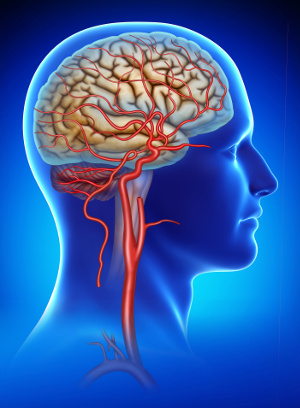
 Your birth attest reveals your actual age but your biological age gives a more accurate picture of your health and life expectancy. Our biological age and cardiovascular health are closely connected, with atherosclerosis and arterial stiffness representing a progressive process that eventually leads to the majority of deaths. Nonetheless, you can do a lot yourself by making sure to get sufficient amounts the nutrients that are most vital for good cardiovascular health. In this article, we will look closer at some current studies of vitamin K2, Q10, selenium, and omega-3, all of which are essential nutrients that prevent, each in their own way, atherosclerosis, arterial stiffness, and premature death as a result of having high heart age.
Your birth attest reveals your actual age but your biological age gives a more accurate picture of your health and life expectancy. Our biological age and cardiovascular health are closely connected, with atherosclerosis and arterial stiffness representing a progressive process that eventually leads to the majority of deaths. Nonetheless, you can do a lot yourself by making sure to get sufficient amounts the nutrients that are most vital for good cardiovascular health. In this article, we will look closer at some current studies of vitamin K2, Q10, selenium, and omega-3, all of which are essential nutrients that prevent, each in their own way, atherosclerosis, arterial stiffness, and premature death as a result of having high heart age. The number of seniors in the world is growing. It hardly comes as a surprise that old people wish to stay mentally and physically fit and enjoy every minute of the of life. Nonetheless, many middle-aged and older people feel tired and lethargic, or they suffer from chronic diseases that impair their quality of life and are associated with shorter life expectancy. In his book, Coenzyme Q10 – An Insider’s Guide, Dr. William V. Judy looks closer at how Q10 is able to delay the ageing process at a cellular level by increasing energy levels, supporting heart health, and preventing atherosclerosis and other chronic diseases that are linked to ageing. Combined supplementation with Q10 and selenium can even delay the risk of early death by over 50 percent. Dr. Judy makes a point of saying how important it is to choose pharmaceutical-grade Q10 that the body can absorb and utilize.
The number of seniors in the world is growing. It hardly comes as a surprise that old people wish to stay mentally and physically fit and enjoy every minute of the of life. Nonetheless, many middle-aged and older people feel tired and lethargic, or they suffer from chronic diseases that impair their quality of life and are associated with shorter life expectancy. In his book, Coenzyme Q10 – An Insider’s Guide, Dr. William V. Judy looks closer at how Q10 is able to delay the ageing process at a cellular level by increasing energy levels, supporting heart health, and preventing atherosclerosis and other chronic diseases that are linked to ageing. Combined supplementation with Q10 and selenium can even delay the risk of early death by over 50 percent. Dr. Judy makes a point of saying how important it is to choose pharmaceutical-grade Q10 that the body can absorb and utilize.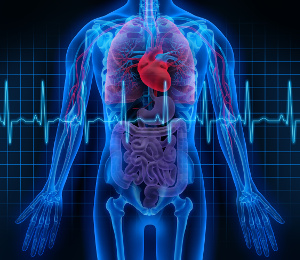 Cardiovascular diseases are widespread and one of the major causes of death. The risk is increased by factors such as ageing, diabetes, and overweight. One of the underlying causes is oxidative stress, which is an imbalance between free radicals and antioxidants. Q10, which is involved in cellular energy turnover, happens to be one of the most powerful antioxidants. According to a review article that is published in the scientific journal Antioxidants, supplementation with Q10 can reduce oxidative stress and cardiovascular mortality. It can also improve quality of life and increase the chances of survival. Generally speaking, Q10 has a huge potential for anyone with a desire to remain healthy, and it is important to choose a supplement with documented quality and bioavailability.
Cardiovascular diseases are widespread and one of the major causes of death. The risk is increased by factors such as ageing, diabetes, and overweight. One of the underlying causes is oxidative stress, which is an imbalance between free radicals and antioxidants. Q10, which is involved in cellular energy turnover, happens to be one of the most powerful antioxidants. According to a review article that is published in the scientific journal Antioxidants, supplementation with Q10 can reduce oxidative stress and cardiovascular mortality. It can also improve quality of life and increase the chances of survival. Generally speaking, Q10 has a huge potential for anyone with a desire to remain healthy, and it is important to choose a supplement with documented quality and bioavailability. Q10 is involved in the cellular energy turnover and it is also a powerful antioxidant that protects cells, tissues, and the cardiovascular system in several ways. Humans synthesize most of their own Q10 but the endogenous production of the compound decreases with age. Besides, certain diseases are associated with lowered endogenous coenzyme Q10 synthesis, and scientists have observed that Q10 supplementation has the potential to attenuate various symptoms linked to heart disease, diabetes, kidney disease, migraine, chronic fatigue syndrome, and fibromyalgia. Q10 can also improve the heart function in older, healthy people, thereby lowering their risk of dying of heart disease. It is difficult for the body to absorb Q10, which is why scientists emphasize the importance of using pharmaceutical-grade supplements. This topic was addressed in a review article published online by www.nutraingredients.com.
Q10 is involved in the cellular energy turnover and it is also a powerful antioxidant that protects cells, tissues, and the cardiovascular system in several ways. Humans synthesize most of their own Q10 but the endogenous production of the compound decreases with age. Besides, certain diseases are associated with lowered endogenous coenzyme Q10 synthesis, and scientists have observed that Q10 supplementation has the potential to attenuate various symptoms linked to heart disease, diabetes, kidney disease, migraine, chronic fatigue syndrome, and fibromyalgia. Q10 can also improve the heart function in older, healthy people, thereby lowering their risk of dying of heart disease. It is difficult for the body to absorb Q10, which is why scientists emphasize the importance of using pharmaceutical-grade supplements. This topic was addressed in a review article published online by www.nutraingredients.com. Diabetes damages the circulatory system in a number of ways that are linked to impaired quality of life and early death. A meta-analysis shows that if type 2 diabetics take supplements of Q10 it lowers their risk of cardiovascular disease by reducing levels of total cholesterol and LDL cholesterol. Another positive effect of Q10 is that it serves as a unique antioxidant that counteracts oxidative stress, which is a major cause of atherosclerosis and cardiovascular damage. One of the problems of using cholesterol-lowering statins is that it inhibits the body’s endogenous Q10 synthesis, but this is something one can compensate for. According to Danish research, it is also a good idea to limit your carbohydrate intake and follow the new dietary guidelines that help stabilize blood sugar levels.
Diabetes damages the circulatory system in a number of ways that are linked to impaired quality of life and early death. A meta-analysis shows that if type 2 diabetics take supplements of Q10 it lowers their risk of cardiovascular disease by reducing levels of total cholesterol and LDL cholesterol. Another positive effect of Q10 is that it serves as a unique antioxidant that counteracts oxidative stress, which is a major cause of atherosclerosis and cardiovascular damage. One of the problems of using cholesterol-lowering statins is that it inhibits the body’s endogenous Q10 synthesis, but this is something one can compensate for. According to Danish research, it is also a good idea to limit your carbohydrate intake and follow the new dietary guidelines that help stabilize blood sugar levels. Q10 is a unique and wonderful coenzyme with a key function in energy turnover and a role as a powerful antioxidant. The body produces the lion’s share Q10 for its own needs but the endogenous synthesis of the compound decreases with age. Moreover, cholesterol-lowering statins and bisphosphonates used to treat osteoporosis disrupt the body’s Q10 synthesis. Over the past decades, numerous studies have shown that Q10 supplementation can slow down the ageing process. Q10 is also useful in connection with heart failure and several other chronic ailments that typically occur in old age. This is described in a review article that is published in Mechanisms of Ageing and Development. With Q10 supplements, it’s important to choose pharmaceutical-grade products with documented quality and bioavailability.
Q10 is a unique and wonderful coenzyme with a key function in energy turnover and a role as a powerful antioxidant. The body produces the lion’s share Q10 for its own needs but the endogenous synthesis of the compound decreases with age. Moreover, cholesterol-lowering statins and bisphosphonates used to treat osteoporosis disrupt the body’s Q10 synthesis. Over the past decades, numerous studies have shown that Q10 supplementation can slow down the ageing process. Q10 is also useful in connection with heart failure and several other chronic ailments that typically occur in old age. This is described in a review article that is published in Mechanisms of Ageing and Development. With Q10 supplements, it’s important to choose pharmaceutical-grade products with documented quality and bioavailability.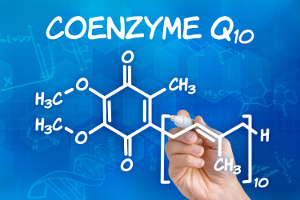 Q10 is a unique compound with a key role in cellular energy turnover. It also serves as a powerful antioxidant. The body is able to synthesize most of the Q10 that it needs but as we grow older, our endogenous synthesis decreases, making us vulnerable in different ways. Cholesterol-lowering medicine and certain types of disease are also associated with lower levels of Q10 in the body. In a new review article, a group of scientists have scrutinized hundreds of Q10 studies that have been published in the years 2010-2020. They are able to conclude that Q10 is of particular importance to the heart, circulatory system, fertility, muscles, eyes and vision, and the ageing process. Things like migraines, chronic fatigue syndrome, and neurodegenerative diseases such as Parkinson’s and Alzheimer’s disease are also addressed. The body has difficulty with absorbing Q10 from food and supplements so it is recommendable to always choose a pharmaceutical-grade Q10 preparation with documented bioavailability.
Q10 is a unique compound with a key role in cellular energy turnover. It also serves as a powerful antioxidant. The body is able to synthesize most of the Q10 that it needs but as we grow older, our endogenous synthesis decreases, making us vulnerable in different ways. Cholesterol-lowering medicine and certain types of disease are also associated with lower levels of Q10 in the body. In a new review article, a group of scientists have scrutinized hundreds of Q10 studies that have been published in the years 2010-2020. They are able to conclude that Q10 is of particular importance to the heart, circulatory system, fertility, muscles, eyes and vision, and the ageing process. Things like migraines, chronic fatigue syndrome, and neurodegenerative diseases such as Parkinson’s and Alzheimer’s disease are also addressed. The body has difficulty with absorbing Q10 from food and supplements so it is recommendable to always choose a pharmaceutical-grade Q10 preparation with documented bioavailability.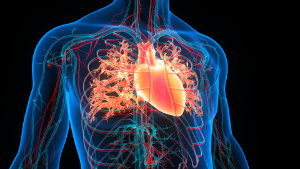 Cardiovascular diseases are the leading cause of death. However, in 2013, Professor Urban Alehagen, a Swedish cardiologist, demonstrated that giving supplements of selenium and Q10 to seniors could strengthen their hearts and reduce their cardiovascular mortality rate by over 50 percent. In follow-ups of his research, it was seen that the two supplements had a long-term effect on lifespan, but there is more to the story. In a whole new study that is published in European Journal of Nutrition, Alehagen manages to show in detail that selenium and Q10 have a positive effect on oxidative stress and inflammation at the same time as improving a number of biomarkers of heart health. He also explains why it can be a challenge to get enough Q10 and selenium through an entire life.
Cardiovascular diseases are the leading cause of death. However, in 2013, Professor Urban Alehagen, a Swedish cardiologist, demonstrated that giving supplements of selenium and Q10 to seniors could strengthen their hearts and reduce their cardiovascular mortality rate by over 50 percent. In follow-ups of his research, it was seen that the two supplements had a long-term effect on lifespan, but there is more to the story. In a whole new study that is published in European Journal of Nutrition, Alehagen manages to show in detail that selenium and Q10 have a positive effect on oxidative stress and inflammation at the same time as improving a number of biomarkers of heart health. He also explains why it can be a challenge to get enough Q10 and selenium through an entire life. Selenium is a trace element with a number of essential functions. An estimated one billion people worldwide get too little dietary selenium. The problem is mainly a result of nutrient-depleted farmland. Moreover, blood levels of selenium drop drastically in connection with COVID-19 infections, serious illness, and pregnancy because the body has an increased need for the nutrient. Altogether, selenium deficiency increases the risk of complicated COVID-19 infections, autoimmune diseases such as rheumatoid arthritis, Hashimoto’s thyroiditis, preterm delivery, and miscarriage. Supplementation may help optimize blood levels of selenium, which can be relevant for preventing and treating a number of common diseases, according to an article that is published in International Journal of Medical Sciences.
Selenium is a trace element with a number of essential functions. An estimated one billion people worldwide get too little dietary selenium. The problem is mainly a result of nutrient-depleted farmland. Moreover, blood levels of selenium drop drastically in connection with COVID-19 infections, serious illness, and pregnancy because the body has an increased need for the nutrient. Altogether, selenium deficiency increases the risk of complicated COVID-19 infections, autoimmune diseases such as rheumatoid arthritis, Hashimoto’s thyroiditis, preterm delivery, and miscarriage. Supplementation may help optimize blood levels of selenium, which can be relevant for preventing and treating a number of common diseases, according to an article that is published in International Journal of Medical Sciences. Lack of selenium, an essential trace element, may cause thyroid disorders, cardiovascular disease, virus infections, AIDS, infertility, neurological disturbances, and cancer. An estimated one billion people worldwide are selenium-deficient. This is mainly a result of nutrient-depleted soil, which is a real problem in places like Europe. For decades, scientists have been warning about this problem, and a lot suggests that we need more than the officially recommended intake to protect ourselves effectively against disease, according to a review article published in StatPearls.
Lack of selenium, an essential trace element, may cause thyroid disorders, cardiovascular disease, virus infections, AIDS, infertility, neurological disturbances, and cancer. An estimated one billion people worldwide are selenium-deficient. This is mainly a result of nutrient-depleted soil, which is a real problem in places like Europe. For decades, scientists have been warning about this problem, and a lot suggests that we need more than the officially recommended intake to protect ourselves effectively against disease, according to a review article published in StatPearls.

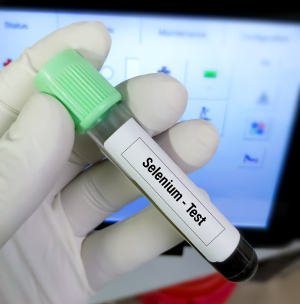 Over the past decades, numerous studies have linked low selenium levels in the blood to cardiovascular disease, cancer, increased risk of infection, thyroid disorders, and several other diseases. Due to the widespread problems with selenium deficiency, supplementation with this nutrient is of potential value to our general health. In a review article that is published in Oxidative Medicine and Cellular Longevity, the authors look at selenium’s role in connection with a host of different diseases and metabolic disorders.
Over the past decades, numerous studies have linked low selenium levels in the blood to cardiovascular disease, cancer, increased risk of infection, thyroid disorders, and several other diseases. Due to the widespread problems with selenium deficiency, supplementation with this nutrient is of potential value to our general health. In a review article that is published in Oxidative Medicine and Cellular Longevity, the authors look at selenium’s role in connection with a host of different diseases and metabolic disorders.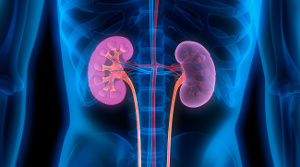 The kidneys cleanse our blood. Well-functioning kidneys are vital for the circulatory system and good health in general. Normal functioning of cells, including kidney cells, hinges on a host of different selenium-containing proteins and coenzyme Q10. Studies show that older people in many parts of the world, Europe included, have deficiencies of both substances. Therefore, a team of Swedish scientists conducted a study where they looked at selenium status and kidney function in a group of seniors. They gave selenium yeast and coenzyme Q10 or placebo to the participants for a period of four years. The results showed that the supplemented group as compared with the placebo group had improved kidney function according to several parameters. The positive effect on cellular energy metabolism, inflammation, and oxidative stress was attributed to the two supplements. The study is published in the science journal Nutrients.
The kidneys cleanse our blood. Well-functioning kidneys are vital for the circulatory system and good health in general. Normal functioning of cells, including kidney cells, hinges on a host of different selenium-containing proteins and coenzyme Q10. Studies show that older people in many parts of the world, Europe included, have deficiencies of both substances. Therefore, a team of Swedish scientists conducted a study where they looked at selenium status and kidney function in a group of seniors. They gave selenium yeast and coenzyme Q10 or placebo to the participants for a period of four years. The results showed that the supplemented group as compared with the placebo group had improved kidney function according to several parameters. The positive effect on cellular energy metabolism, inflammation, and oxidative stress was attributed to the two supplements. The study is published in the science journal Nutrients. It is commonly known that fish oil with its high content of the two omega-3 fatty acids EPA and DHA helps prevent atherosclerosis. According to a new international study, it appears to be DHA that has the major effect. This new insight, which has surprised the scientists, is relevant to public health because cardiovascular disease continues to be the leading cause of death.
It is commonly known that fish oil with its high content of the two omega-3 fatty acids EPA and DHA helps prevent atherosclerosis. According to a new international study, it appears to be DHA that has the major effect. This new insight, which has surprised the scientists, is relevant to public health because cardiovascular disease continues to be the leading cause of death.
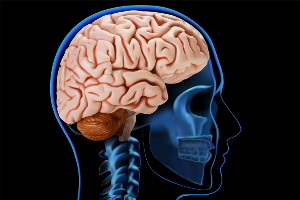 Lack of vitamin D is a global health problem that increases mortality rates. At this point, many studies have shown that having adequate amounts of vitamin D in the blood can lower your risk of cardiovascular disease, which is the leading cause of death. In a new review article that is published in Nutrients, the authors look closer at vitamin D supplementation to see if it can prevent stroke and speed up rehabilitation. It is essential that vitamin D supplements have good bioavailability so they can optimize blood levels of the nutrient.
Lack of vitamin D is a global health problem that increases mortality rates. At this point, many studies have shown that having adequate amounts of vitamin D in the blood can lower your risk of cardiovascular disease, which is the leading cause of death. In a new review article that is published in Nutrients, the authors look closer at vitamin D supplementation to see if it can prevent stroke and speed up rehabilitation. It is essential that vitamin D supplements have good bioavailability so they can optimize blood levels of the nutrient.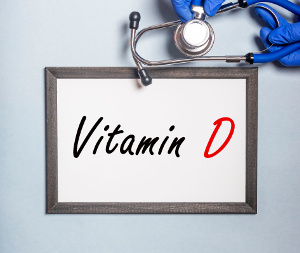 Vitamin D plays a major role in our health. The main focus, however, is on vitamin D’s importance for bones, while many health professionals are totally unaware of the nutrient’s other essential functions. According to a review article published in Nutrients, half the global population has low vitamin D levels in the blood, which increases the risk of cardiovascular disease, hypertension, cancer, type 2 diabetes, Alzheimer’s disease, respiratory infections like COVID-19, and early death. The authors also mention that vitamin D science is often inadequate or misleading because studies focus on supplementation rather than looking at blood levels of 25(OH)D. Consequently, trials are often made with far too small vitamin D doses or with too a short a trial period. In either case, blood levels of vitamin D fail to reach their optimum. What is more, levels of 25(OH)D in the blood should ideally be above 75 nmol/L in order to protect against cardiovascular disease, cancer, and early death. Because this threshold level is higher than the official threshold levels, the scientists recommend high-dosed vitamin D levels as a way to reach an optimal nutrient status.
Vitamin D plays a major role in our health. The main focus, however, is on vitamin D’s importance for bones, while many health professionals are totally unaware of the nutrient’s other essential functions. According to a review article published in Nutrients, half the global population has low vitamin D levels in the blood, which increases the risk of cardiovascular disease, hypertension, cancer, type 2 diabetes, Alzheimer’s disease, respiratory infections like COVID-19, and early death. The authors also mention that vitamin D science is often inadequate or misleading because studies focus on supplementation rather than looking at blood levels of 25(OH)D. Consequently, trials are often made with far too small vitamin D doses or with too a short a trial period. In either case, blood levels of vitamin D fail to reach their optimum. What is more, levels of 25(OH)D in the blood should ideally be above 75 nmol/L in order to protect against cardiovascular disease, cancer, and early death. Because this threshold level is higher than the official threshold levels, the scientists recommend high-dosed vitamin D levels as a way to reach an optimal nutrient status.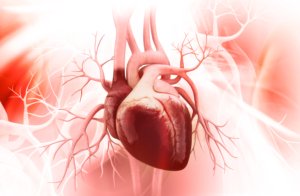 Heart attack is one of the leading causes of death worldwide. A heart attack may cause permanent damage to the cardiac muscle and that can impair the patient’s quality of life. According to a new pre-clinical study that is published in Redox Biology, immediate treatment with vitamin E may counteract lasting cardiac damage, and the researchers believe this could represent a new and inexpensive treatment option. Earlier studies have shown that high-dosed supplementation with pharmaceutical-grade Q10 significantly improves both quality of life and survival in patients with chronic heart failure.
Heart attack is one of the leading causes of death worldwide. A heart attack may cause permanent damage to the cardiac muscle and that can impair the patient’s quality of life. According to a new pre-clinical study that is published in Redox Biology, immediate treatment with vitamin E may counteract lasting cardiac damage, and the researchers believe this could represent a new and inexpensive treatment option. Earlier studies have shown that high-dosed supplementation with pharmaceutical-grade Q10 significantly improves both quality of life and survival in patients with chronic heart failure. According to an article that is published in StatPearls, vitamin E is a powerful antioxidant that protects against atherosclerosis, cardiovascular disease, and blood clots. Vitamin E is also important for fertility, cell functions, and immune defense. A low-fat diet may result in a vitamin E deficiency. You should also beware that diseases characterized by impaired lipid absorption may increase you need for vitamin E.
According to an article that is published in StatPearls, vitamin E is a powerful antioxidant that protects against atherosclerosis, cardiovascular disease, and blood clots. Vitamin E is also important for fertility, cell functions, and immune defense. A low-fat diet may result in a vitamin E deficiency. You should also beware that diseases characterized by impaired lipid absorption may increase you need for vitamin E.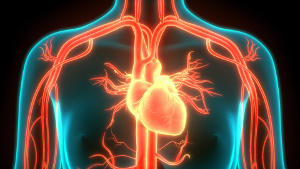 The diet’s content of vitamin K1 and vitamin K2 lowers the risk of atherosclerosis and cardiovascular disease by way of several mechanisms, yet there are relatively few studies that show the relation. In a Danish study that is published in Journal of the American Heart Association, scientists looked closer at how the content of the two forms vitamin K in the diet affect the risk of hospitalization linked to atherosclerosis and cardiovascular disease. So how does vitamin K counteract atherosclerosis and how much of the nutrient do we need?
The diet’s content of vitamin K1 and vitamin K2 lowers the risk of atherosclerosis and cardiovascular disease by way of several mechanisms, yet there are relatively few studies that show the relation. In a Danish study that is published in Journal of the American Heart Association, scientists looked closer at how the content of the two forms vitamin K in the diet affect the risk of hospitalization linked to atherosclerosis and cardiovascular disease. So how does vitamin K counteract atherosclerosis and how much of the nutrient do we need? It has been known for long that vitamin K2 is important for circulation and bone health. According to a new study, vitamin K2 also lowers the risk of cardiovascular disease in smokers and other nicotine users. This is because vitamin K2 counteracts oxidative stress and atherosclerosis. The scientists stress how important vitamin K2 is for public health, including otherwise unhealthy groups such as smokers.
It has been known for long that vitamin K2 is important for circulation and bone health. According to a new study, vitamin K2 also lowers the risk of cardiovascular disease in smokers and other nicotine users. This is because vitamin K2 counteracts oxidative stress and atherosclerosis. The scientists stress how important vitamin K2 is for public health, including otherwise unhealthy groups such as smokers. Cardiovascular diseases are the leading cause of death and, as it turns out, alarming problems with vitamin K2 deficiency are a contributing factor, according to a new review article that is published in Open Heart. Vitamin K2 regulates the body’s calcium distribution and lack of the vitamin increases the risk of atherosclerosis, arterial stiffness, insulin resistance, and heart failure. Supplementation with vitamin K2 has been seen to improve circulatory health in a number of different ways, and it also has a positive effect on inflammation and type 2 diabetes. Unfortunately, modern diets are not all that rich in vitamin K2 and the problem is made worse by the fact that different types of medicine disrupt the body’s ability to utilize the nutrient.
Cardiovascular diseases are the leading cause of death and, as it turns out, alarming problems with vitamin K2 deficiency are a contributing factor, according to a new review article that is published in Open Heart. Vitamin K2 regulates the body’s calcium distribution and lack of the vitamin increases the risk of atherosclerosis, arterial stiffness, insulin resistance, and heart failure. Supplementation with vitamin K2 has been seen to improve circulatory health in a number of different ways, and it also has a positive effect on inflammation and type 2 diabetes. Unfortunately, modern diets are not all that rich in vitamin K2 and the problem is made worse by the fact that different types of medicine disrupt the body’s ability to utilize the nutrient.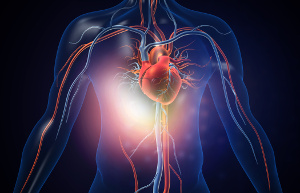 Cardiovascular disease is still the leading cause of death, and both diet and lifestyle are of huge importance. According to a new meta-analysis, fish oil, folic acid, and Q10 are some of nutrients with the greatest potential to lower the risk. It is important to underline that supplements are not likely to make much of a difference if the dosage is too low or if the quality of the preparations is poor.
Cardiovascular disease is still the leading cause of death, and both diet and lifestyle are of huge importance. According to a new meta-analysis, fish oil, folic acid, and Q10 are some of nutrients with the greatest potential to lower the risk. It is important to underline that supplements are not likely to make much of a difference if the dosage is too low or if the quality of the preparations is poor. Magnesium plays a vital role in the body’s calcium distribution and is involved in over 300 enzyme processes that are relevant for our bones, circulatory system, muscles, nervous system, blood pressure, blood sugar levels, immune system, and utilization of vitamin D. For that reason, too little magnesium increases your risk of osteoporosis, diabetes, cardiovascular disease, migraine headaches, infections, PMS, plus anxiety and other neurological disorders. This is highlighted in a review article published by Medical News Today. It is therefore important to be aware of all the overlooked factors that may cause a magnesium deficiency.
Magnesium plays a vital role in the body’s calcium distribution and is involved in over 300 enzyme processes that are relevant for our bones, circulatory system, muscles, nervous system, blood pressure, blood sugar levels, immune system, and utilization of vitamin D. For that reason, too little magnesium increases your risk of osteoporosis, diabetes, cardiovascular disease, migraine headaches, infections, PMS, plus anxiety and other neurological disorders. This is highlighted in a review article published by Medical News Today. It is therefore important to be aware of all the overlooked factors that may cause a magnesium deficiency.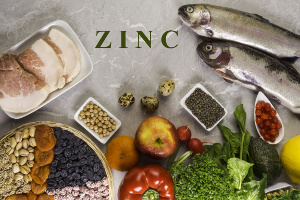 Type 2 diabetes is spreading like a bushfire with many people unaware that they have the disease. Diabetes increases your risk of cardiovascular disease, blood clots, and early death. A group of scientists from the University of St. Andrews in Scotland has looked closer at the different processes and studied the trace element zinc and its ability to improve the outcome of therapy by preventing dangerous blood clots. The new study is published in the Chemical Science journal. Zinc deficiencies are rather common and type 2 diabetes in itself increases the need for this nutrient.
Type 2 diabetes is spreading like a bushfire with many people unaware that they have the disease. Diabetes increases your risk of cardiovascular disease, blood clots, and early death. A group of scientists from the University of St. Andrews in Scotland has looked closer at the different processes and studied the trace element zinc and its ability to improve the outcome of therapy by preventing dangerous blood clots. The new study is published in the Chemical Science journal. Zinc deficiencies are rather common and type 2 diabetes in itself increases the need for this nutrient. "After about one week of taking the Q10 supplement I could feel a huge difference," says 23-year old Alan Piccini, who has been suffering from extreme fatigue and muscle aches ever since he was a child.
"After about one week of taking the Q10 supplement I could feel a huge difference," says 23-year old Alan Piccini, who has been suffering from extreme fatigue and muscle aches ever since he was a child. “Taking capsules with co-enzyme Q10 has freed me of the severe side effects of my cholesterol lowering medicine,” Mrs Franken explains.
“Taking capsules with co-enzyme Q10 has freed me of the severe side effects of my cholesterol lowering medicine,” Mrs Franken explains.